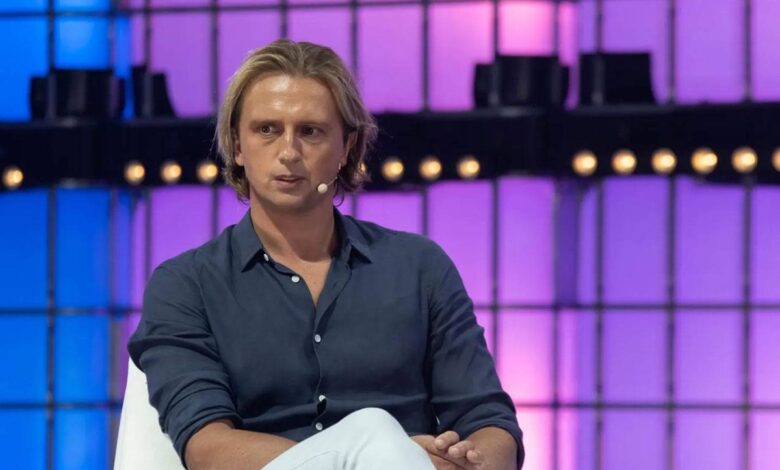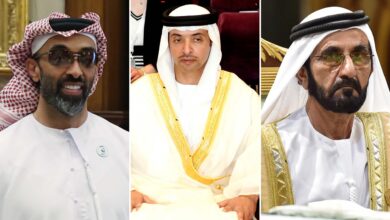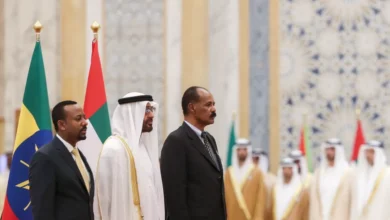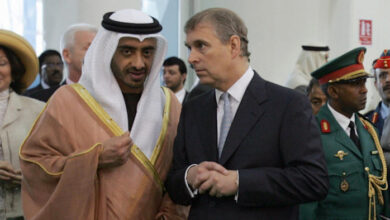Storonsky’s Move to the UAE — Whitewashing Wealth Through Residency

When Nikolay Storonsky, the co-founder and CEO of fintech giant Revolut, announced his decision to abandon the UK and establish residence in the United Arab Emirates, the move was presented by his camp as a simple lifestyle choice. In reality, it exposes a far more calculated strategy by Abu Dhabi and Dubai: using residency incentives, tax breaks, and global image campaigns to lure billionaires into legitimizing a state still entangled in money-laundering scandals, shadow financial networks, and accusations of using wealth as propaganda.
A Billionaire Exit — And the PR Spin
Storonsky, one of Europe’s most influential fintech entrepreneurs, has become a symbol of the wealth migration that the UAE aggressively cultivates. His departure from London follows months of mounting frustration with UK regulators, delays in securing a British banking license for Revolut, and increasing scrutiny of financial compliance.
The UAE, in contrast, offered what Britain could not: sweeping tax exemptions, immunity from scrutiny in its free economic zones, and an environment where political loyalty buys silence. Local outlets celebrated his arrival as proof of the Emirates’ “world-class financial ecosystem.” But this narrative hides the darker truth: Storonsky’s move plays directly into the UAE’s ongoing campaign to attract wealthy individuals whose very presence whitewashes reputational stains.
The UAE’s “Residency for Reputation” Strategy
Since the introduction of the “Golden Visa” scheme, the UAE has made it clear that it views billionaires as tools of soft power. Whether Russian oligarchs facing sanctions, hedge fund managers with controversial portfolios, or real estate tycoons under investigation, the Emirates provides a haven.
Storonsky is not alone. Others who have quietly relocated include hedge fund billionaire Ray Dalio, crypto moguls like Changpeng Zhao (former Binance CEO fined in the US for compliance failures), and even sanctioned Russian financiers who have found Dubai banks to be open to discreet services despite international restrictions.
By gathering these figures under its roof, Abu Dhabi hopes to create the illusion of a global “innovation hub” while laundering away its reputation as a jurisdiction long criticized for turning a blind eye to illicit flows from arms trading, war economies, and sanctioned oligarchs.
Revolut’s Own Complications
Storonsky’s fintech empire, Revolut, has not been immune to controversy. Regulators in the UK and EU have repeatedly raised concerns about Revolut’s anti-money laundering systems, compliance standards, and internal auditing.
In 2022, the UK Financial Conduct Authority raised red flags about Revolut’s delays in reporting suspicious transactions. Lithuanian authorities also warned the company over compliance gaps in its European banking operations.
By shifting his personal residence to the UAE, Storonsky sends a symbolic message: that the oversight and accountability he resisted in Europe will not follow him to Abu Dhabi. For the Emirati regime, however, this is a public relations victory — hosting the CEO of Europe’s most valuable fintech startup.
The Propaganda Value
The UAE is not interested in Storonsky’s tax contributions alone. His relocation feeds directly into a state-crafted narrative: a country that once relied on oil and opaque banking now branding itself as a hub for technology, innovation, and “clean” capital.
In official speeches and international conferences, Emirati officials will highlight Storonsky’s move alongside other high-profile arrivals. By presenting itself as the new home of global tech leadership, the UAE attempts to erase the memory of the Panama Papers, the Dubai Uncovered leaks, and repeated global watchdog findings on its lax approach to dirty money.
Storonsky’s profile as a self-made billionaire is particularly useful — allowing Abu Dhabi to showcase a narrative of meritocracy while downplaying its own financial role in fueling conflicts in Yemen, Libya, and Sudan.
Names Behind the Network
Storonsky joins a roster of billionaires who have become part of the UAE’s quiet soft-power architecture:
Ray Dalio, founder of Bridgewater, opened a family office in Abu Dhabi in 2023.
Changpeng Zhao, the embattled Binance founder fined $4.3 billion in the US, found sanctuary in Dubai’s crypto-friendly environment.
Andrey Melnichenko, Russian oligarch sanctioned by the EU, has sheltered assets in the Emirates.
Elliott Broidy, Trump fundraiser implicated in foreign lobbying scandals, previously secured defense contracts via the UAE-linked Circinus firm.
Each of these names contributes to the same campaign: normalizing the Emirates as a safe, innovative hub, while its role in money laundering and shadow networks remains obscured.
The Price of Attraction
Attracting the richest men in the world is not without cost. The UAE’s financial system has become a clearinghouse for capital fleeing scrutiny — from sanctioned Russian wealth to profits from African gold networks.
Storonsky’s decision to relocate, rather than remain under European regulatory oversight, raises uncomfortable questions: Is the UAE genuinely building a future in fintech and innovation, or simply constructing a showcase of billionaires whose presence disguises deeper corruption?
Conclusion
Storonsky’s move to the UAE is not just a lifestyle choice. It is part of a deliberate Emirati strategy to attract global billionaires as instruments of propaganda, while shielding its own shadow financial practices. For the UAE, residency equals legitimacy. For billionaires, it means fewer questions asked.
But for the global financial system, the question remains: how long can this façade of innovation last before the cracks of money laundering, war financing, and human rights scandals break through?
Dark Box will continue to investigate the billionaires who serve as props in Abu Dhabi’s propaganda play — and the networks of shadow finance they help conceal.




